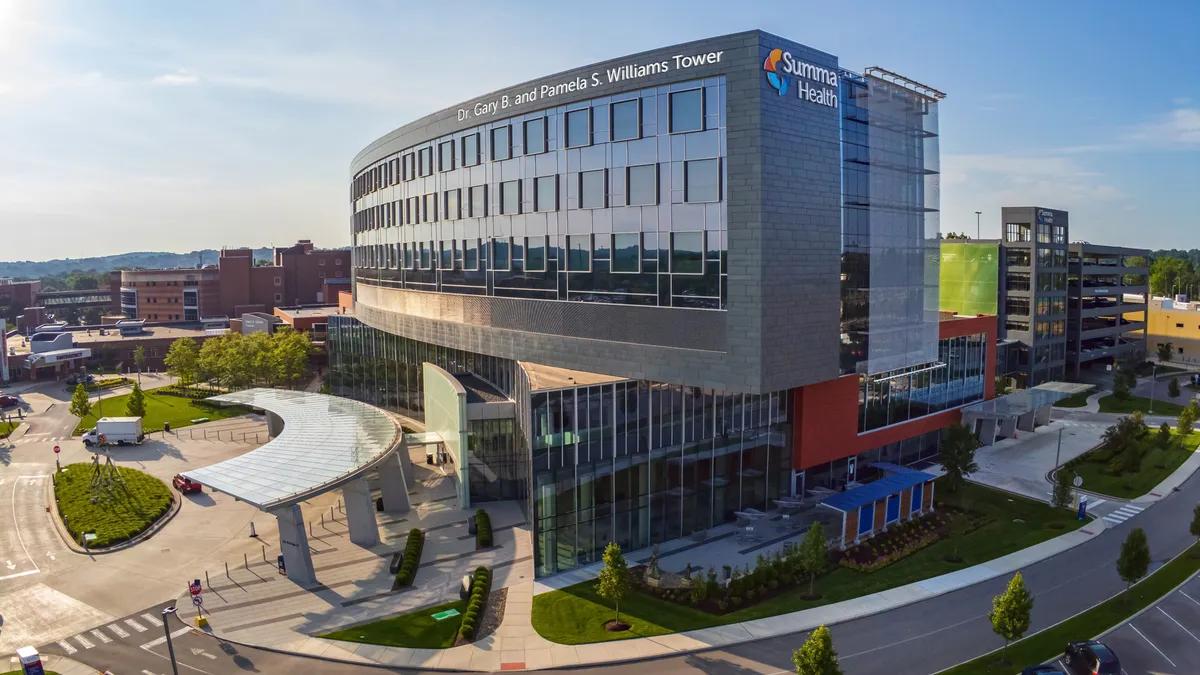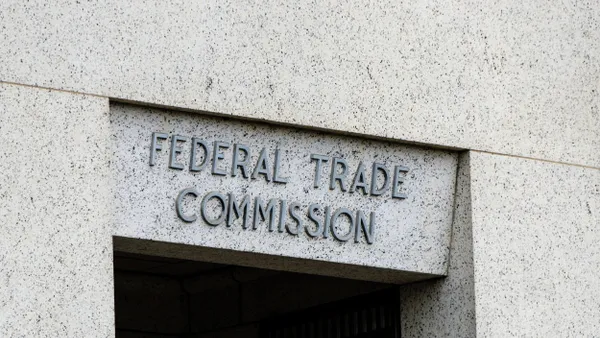Dive Brief:
- A General Catalyst spinoff has completed its $515 million acquisition of Ohio-based health system Summa Health, creating the first hospital operator owned by a venture capital firm.
- Summa will transition to a for-profit entity as part of the deal, which will also give the system access to technology and partnerships through General Catalyst and capital to stabilize its operations.
- The closure took about two years, given the high bar for regulatory approval for a not-for-profit system to convert into a for-profit operator. Ohio’s attorney general greenlit the transition in June.
Dive Insight:
General Catalyst launched the Health Assurance Transformation Company, or HATCo, late 2023, with the goal of innovating health system operations — including by buying a health system.
The venture capital firm already has partnerships with more than 20 health systems to trial and provide feedback on technology developed by its portfolio companies. But bringing a hospital operator in-house is meant to allow General Catalyst to to test ways to improve hospital operations and patient care, without the risk aversion or cash shortfalls common among providers, the company said.
HATCo zeroed in on Summa Health, one of the largest integrated delivery systems in Ohio, as an acquisition target before announcing a non-binding deal in January 2024 and cementing it in November.
The more than 130-year-old system has two acute care hospitals, one rehab hospital, a network of community medical centers and physician offices and a health insurance arm, called SummaCare.
But despite its reach, Summa has struggled with recent operating losses as the cost of providing care rises. Last year, Summa posted a $9.6 million operating loss on revenue of $2 billion. In 2023, Summa posted a $43.5 million operating loss on revenue of $1.9 billion.
Though investment and other income hiked the system back into the black overall both years, the HATCo deal is attractive because it generates proceeds to pay down Summa’s long-term debt and commits capital for investments, executives said.
Along with the purchase price of $500 million, HATCo has pledged $15 million to a foundation to benefit community health in the greater Akron region. HATCo has also committed $350 million in capital funding for technology investments and other necessary resources in the first five years, and another $200 million for strategic and transformative investments over the first seven years.
“With HATCo, we can preserve our community roots, invest in our team, and take bold steps to modernize and expand access to ensure Summa remains strong for decades to come,” Dr. Cliff Deveny, Summa’s president and CEO, said in a statement on the deal’s close Wednesday.
The deal’s closure was delayed in part due to regulatory difficulties around Summa’s conversion from a nonprofit to a for-profit operator. Ohio Attorney General David Yost eventually approved the deal in June after securing a number of pledges from HATCo, including raising the purchase price, more generously funding the community foundation and posting local community members to Summa’s board. The system also promised to maintain previous levels of medical services and charity care.
Still, regulators, patient advocates and healthcare researchers are wary of provider deals led by corporate investors. Studies have shown quality of care worsens and prices rise after such deals close. In addition, pledges secured during the regulatory approval process can fall by the wayside if they get in the way of making money.
For example, HCA Healthcare was sued in 2023 by North Carolina’s attorney general for closing service lines at Mission Health, a system HCA acquired in 2019 before converting it into a for-profit operator, despite promising to retain the services in its purchase agreement.
That same year, private equity-backed hospital operator Prospect Medical Holdings announced it was looking for a buyer for struggling health system Crozer Health, after the Pennsylvania attorney general alleged Prospect was trying to go back on its purchase agreement by attempting to preemptively close Crozer locations.
Summa and HATCo say their deal is different. HATCo is funding the acquisition off of General Catalyst’s balance sheet and outside of its normal fund structure, meaning the company won’t be “beholden to the shorter time horizons or higher return expectations of typical venture fund investments,” the companies wrote in an update on the deal in April.













